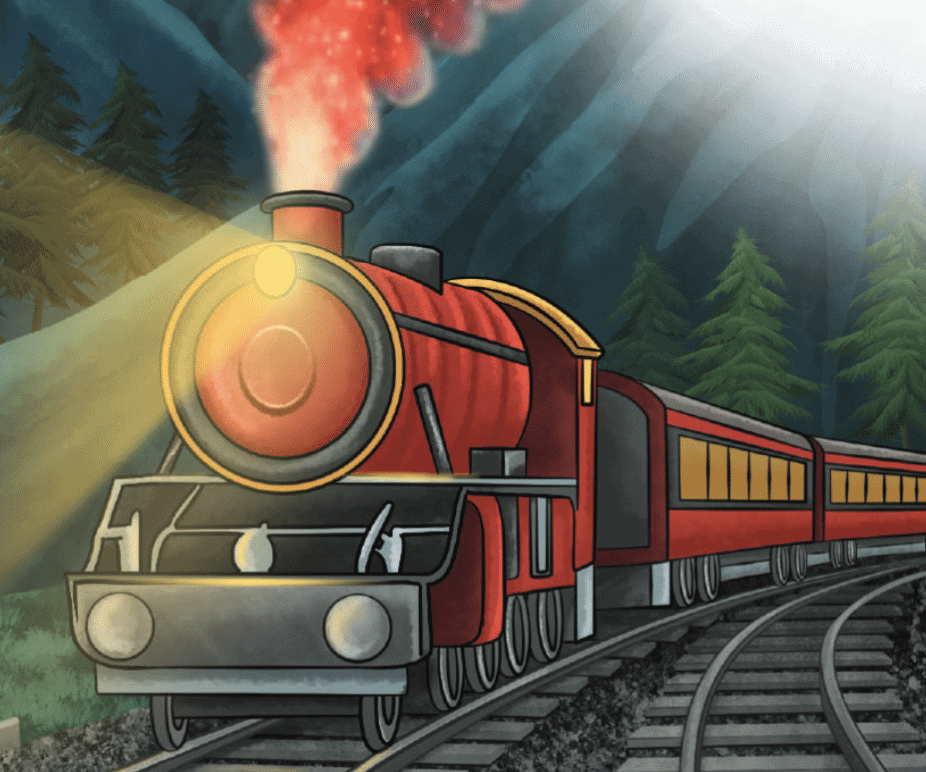Travel Class 7 Notes English Unit 4 Free PDF
| Table of contents |

|
| Introduction |

|
| Explanation of the Poem |

|
| Moral of the Poem |

|
| Difficult Words |

|
Introduction
- This short and lively poem, written by Edna St. Vincent Millay, expresses a deep love for travel and adventure through the speaker’s fascination with trains.
- The speaker imagines the sounds and sights of trains passing by, even when they are far away, and feels a strong urge to hop on any train, no matter its destination.
- The poem captures the excitement of exploring new places and the joy of making friends, while highlighting the speaker’s restless spirit and longing for new experiences.

Explanation of the Poem
Stanza 1
The railroad track is miles away,
And the day is loud with voices speaking,
Yet there isn’t a train goes by all day
But I hear its whistle shrieking.
Explanation:
In this stanza, the speaker describes how the railway tracks are far from where they are, and the day is noisy with people talking. Despite the distance and the absence of trains passing nearby, the speaker imagines hearing the loud, piercing whistle of a train every time one goes by. The word “shrieking” makes the whistle sound sharp and exciting, showing how the speaker’s mind is always on trains. This reflects their strong fascination with travel, as the idea of a train’s journey captures their attention even in a busy, noisy day, pulling them away from the chatter around them.
Stanza 2
All night there isn’t a train goes by,
Though the night is still for sleep and dreaming,
But I see its cinders red on the sky,
And hear its engine steaming.
Explanation:
Here, the speaker talks about the quiet night, a time meant for sleeping and dreaming. Even though no trains pass close by, the speaker imagines seeing the train’s red cinders—glowing sparks from the engine—lighting up the night sky and hearing the sound of the engine puffing steam. This vivid picture shows how the speaker’s imagination keeps the train alive in their mind, even in the calm and silent night. The cinders and steaming engine add a sense of movement and energy, revealing the speaker’s excitement about trains and the adventures they represent, keeping them awake with thoughts of travel.
Stanza 3
My heart is warm with the friends I make,
And better friends I’ll not be knowing;
Yet there isn’t a train I wouldn’t take,
No matter where it’s going.
Explanation:
In the final stanza, the speaker shares their love for the friends they’ve made, describing their heart as “warm” with affection and saying they couldn’t find better friends. However, despite this happiness, the speaker admits they would jump on any train, no matter where it’s headed. This shows a powerful pull toward travel and exploration that is stronger than their ties to friends. The phrase “no matter where it’s going” highlights the speaker’s adventurous spirit, ready to embrace the unknown just for the thrill of the journey. It balances the comfort of friendship with the irresistible call of new experiences.
Moral of the Poem
- The poem teaches us that a love for adventure and exploration can live alongside strong connections with friends.
- It encourages us to embrace curiosity and be open to new experiences, even if it means leaving the familiar behind.
- The speaker’s excitement for travel shows that following your passions can lead to a fuller, more exciting life.
Difficult Words
Here are the meanings of some difficult words from the poem, explained simply:
- Railroad: A track made of steel rails for trains to travel on.
- Shrieking: Making a loud, high-pitched sound, like a sharp whistle.
- Cinders: Small pieces of burnt coal or wood, like glowing sparks from a train’s engine.
- Steaming: Giving off steam, like the puffing sound from a train’s engine.
- Warm: Full of love or affection, like feeling happy and close to friends.
FAQs on Travel Class 7 Notes English Unit 4 Free PDF
| 1. What is the main theme of the poem "Travel"? |  |
| 2. How does the poet describe traveling in the poem? |  |
| 3. What moral lessons can be drawn from the poem "Travel"? |  |
| 4. Can you explain some difficult words used in the poem "Travel"? |  |
| 5. How can students relate the poem "Travel" to their own experiences? |  |















